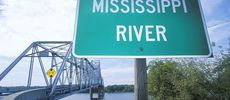Denver's Lead Pipe Replacement Program Receives Federal Support


Denver Water's lead pipe replacement plan received approval from the United States Environmental Protection Agency (EPA) for nearly $700 million to remove all lead water pipes in the Denver region and could become a model for cities nationwide. The city program, which will cost an estimated $681 million, was also awarded $76 million in federal funding from the Bipartisan Infrastructure Act to speed up service line replacements.
The Lead Reduction Program initially received EPA sign-off in 2019, when the agency issued the country's first-ever Safe Drinking Water Act variance, allowing the Denver water utility to try a novel approach.
The plan for addressing lead went so well over the course of three years that federal officials believe its success can be replicated throughout the U.S. The recent final variance from the EPA means that Denver Water's program will extend well into the future.
An Alternative to Orthophosphate
Created in 1918, Denver Water is the largest water utility in Colorado and currently serves 1.5 million people. Hydropower revenue, new tap fees, and water rates fund the public utility instead of taxes. Before the mile-high city banned lead pipes in 1971, many residences and commercial buildings had service lines that contained the toxic heavy metal.
Like many areas across the country, the service lines in Denver that run between water mains and individual buildings tend to be owned by customers, not the utility. Making replacements can be complicated. It requires time, significant investment, clear communication, and cooperation.
For years, the national standard approach to protecting drinking water from lead and copper leaching was for water utilities to use the additive orthophosphate. However, as two Environmental Defense Fund managers pointed out in a blog post last fall, wastewater utility leaders in the Denver metro region worried that orthophosphate would worsen existing algal blooms in the nearby Platte River. A 2018 Chemical & Engineering News article about orthophosphate noted that "excess phosphate can affect wastewater treatment."
In 2019, Denver Water pitched an ambitious alternative plan to the EPA for dealing with the city's lead service lines. The water utility would increase the water's pH level, inventory all customer-owned lead service lines, replace the lines at no charge, hand out free water filters, and conduct ongoing communication and outreach with affected customers.
That December, the EPA gave the program a green light for a three-year period. The Colorado Department of Public Health and Environment also signed off.
Picking Up the Pace
When the pilot program began, Denver Water officials estimated that there were somewhere between 64,000 to 84,000 properties with lead service lines needing replacement. Although the effort is likely to take 15 years, the water utility reported replacing more than 15,000 lead pipes since 2020. That's faster than the previous pace, which was around 1,200 pipes per year.
One of the Lead Reduction Program's main components is replacing lead service lines without charging customers directly, but the water utility also introduced a program that helps defray costs for customers who want to spend their own money on lead water pipe replacements.
The utility gives anyone that could have a lead line a water pitcher, filter, and replacement filters that have been certified to remove lead—all for free. Denver Water advises customers to continue using these filters for drinking water, cooking food, and preparing infant formula for another six months after the utility replaces the line.
Paying Heed to Environmental Justice
In considering which Denver communities to prioritize for the Lead Reduction Program, Denver Water formed partnerships with the organizations NAACP Denver and CREA Results. With environmental justice in mind, the goal was to ensure that historically under-served areas received equal or better replacement rates and filter outreach than the overall service area, according to the EPA.
Ten years ago, testing showed that Denver Water customers with lead service lines and plumbing were above the EPA's action level. Now those lead levels are under the federal limit, the Associated Press reported recently.
"Denver Water's approach to tackling lead in drinking water has been remarkable and an example for other communities across the country," EPA regional administrator KC Becker said in an official release from the agency.
Renewed attention on Denver's program comes at a time when some American cities lag behind on lead water pipe replacements. Under the bipartisan infrastructure law that Congress approved in 2021, the federal government allocated $15 billion to replace lead service lines. The country still has around 6 million to 10 million of these lines underground.






